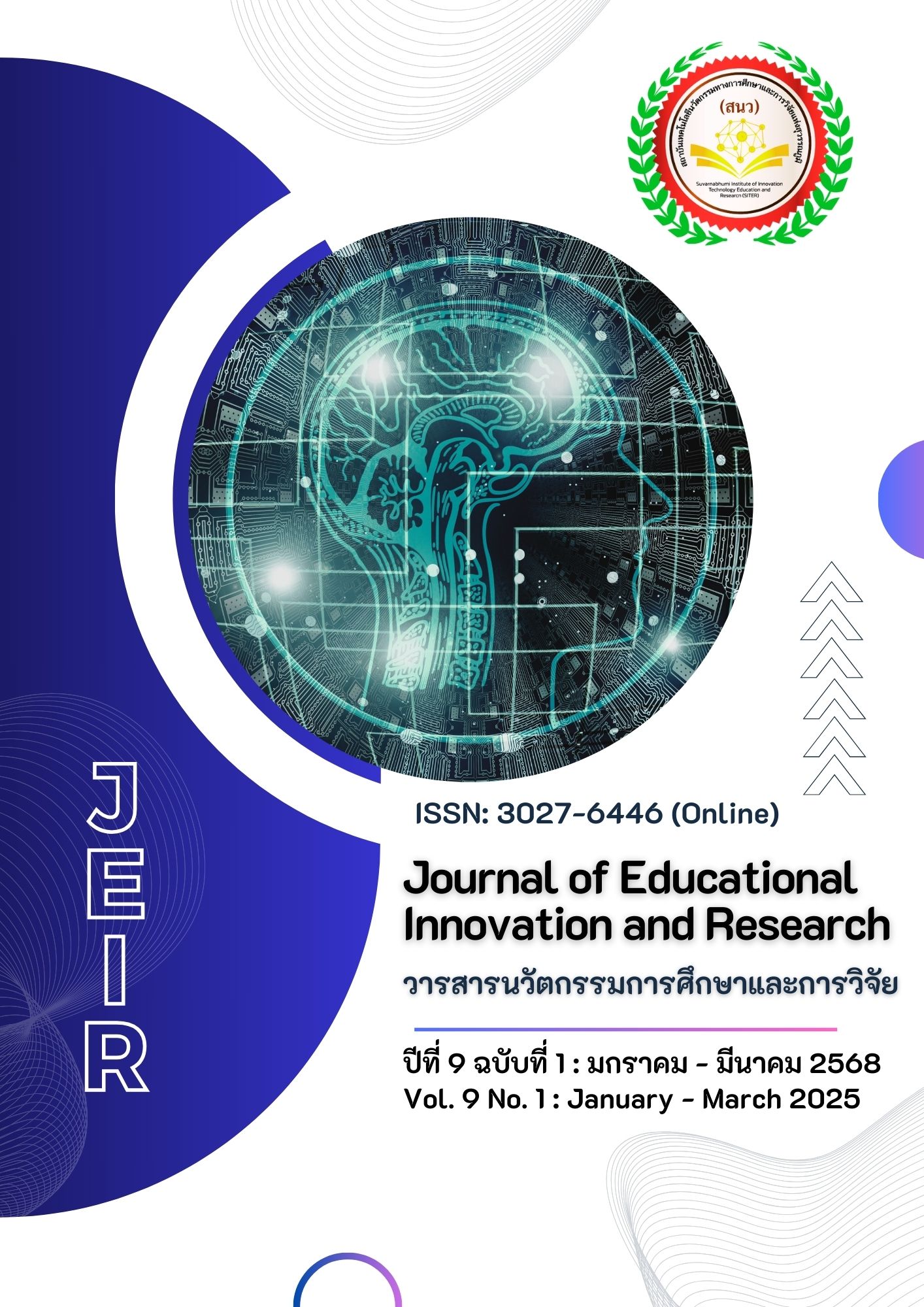ปัจจัยส่วนประสมทางการตลาดที่มีอิทธิพลต่อการตัดสินใจเลือกซื้อ แผ่นเทอร์โมพลาสติกของนักกิจกรรมบำบัดในประเทศไทย
Main Article Content
บทคัดย่อ
การวิจัยนี้มีวัตถุประสงค์เพื่อ 1) สำรวจพฤติกรรมการซื้อแผ่นเทอร์โมพลาสติกของนักกิจกรรมบำบัดในประเทศไทย และ 2) สำรวจปัจจัยส่วนประสมทางการตลาดที่ส่งผลต่อการเลือกซื้อแผ่นเทอร์โมพลาสติกของนักกิจกรรมบำบัดในประเทศไทย รูปแบบการวิจัยเป็นการวิจัยแบบการสำรวจ ผู้เข้าร่วมในการศึกษา ได้แก่ นักกิจกรรมบำบัดที่มีการสั่งซื้อแผ่นเทอร์โมพลาสติกในประเทศไทย จำนวน 63 คน โดยใช้แบบสอบถามอิเล็กทรอนิกส์เป็นเครื่องมือในการเก็บข้อมูล จากนั้นวิเคราะห์ข้อมูลด้วยสถิติเชิงพรรณนา โดยการหาค่าร้อยละ ค่าเฉลี่ย และส่วนเบี่ยงเบนมาตรฐาน ผลการวิจัยพบว่า
1. นักกิจกรรมบำบัดส่วนใหญ่ให้ข้อมูลเกี่ยวกับพฤติกรรมการซื้อแผ่นเทอร์โมพลาสติก ดังนี้ต่อไปนี้ หน่วยงานมีงบประมาณในการสั่งซื้อมากกว่า 40,000 บาทต่อปี (ร้อยละ 28.57) มีจำนวนการสั่งซื้อแผ่นเทอร์โมพลาสติก จำนวน 1-5 แผ่นต่อปี (ร้อยละ 44.44) และราคาซื้อแผ่นเทอร์โมพลาสติกขนาดมาตรฐาน อยู่ที่ 4,500-5,000 บาทต่อแผ่น (ร้อยละ 26.98) อย่างไรก็ตาม นักกิจกรรมบำบัดคาดหวังให้แผ่นเทอร์โมพลาสติกมีราคาอยู่ในช่วง 3,000-3,500 บาทต่อแผ่น (ร้อยละ 22.22)
2. ปัจจัยส่วนประสมทางการตลาดที่มีผลต่อการเลือกซื้อแผ่นเทอร์โมพลาสติกในระดับมากที่สุดคือปัจจัยด้านผลิตภัณฑ์ ได้แก่ หัวข้อการใช้งาน (ค่าเฉลี่ย 4.56) และหัวข้อคุณภาพของวัสดุ (ค่าเฉลี่ย 4.52)
การศึกษานี้สรุปได้ว่านักกิจกรรมบำบัดมีงบประมาณและจำนวนในการสั่งซื้อแผ่นเทอร์โมพลาสติกค่อนข้างน้อย นอกจากนี้ ปัจจุบันมีราคาการสั่งซื้อ/นำเข้าสูงกว่าราคาที่คาดหวังไว้ ซึ่งในการเลือกซื้อแผ่นเทอร์โมพลาสติก นักกิจกรรมบำบัดจะคำนึงถึงปัจจัยผลิตภัณฑ์เป็นหลัก โดยเฉพาะอย่างยิ่งในหัวข้อการนำไปใช้งานและคุณภาพของวัสดุ
Article Details

อนุญาตภายใต้เงื่อนไข Creative Commons Attribution-NonCommercial-NoDerivatives 4.0 International License.
เอกสารอ้างอิง
Amin, C.R., Hasin, M.F., Leon, T.S., Aurko, A.B., Tamanna, T., Rahman, M.A., & Parvez, M.Z. (2020). Consumer Behavior Analysis using EEG Signals for Neuromarketing Application. 2020 IEEE Symposium Series on Computational Intelligence (SSCI), 2061-2066. https://doi:10.1109/SSCI 47803.2020.9308358
Breger-Lee, D. E., & Buford Jr, W.L.J.J.o.H.T. (1992). Properties of thermoplastic splinting materials. Journal of Hand Therapy, 5(4), 202-211. https://doi:10.1016/S0894-1130(12)80274-2
Canelón, F. M. (1995). Material properties: a factor in the selection and applicafion of splinting materials for athletic wrist and hand injuries. Journal of Orthopaedic & Sports Physical Therapy, 22(4), 164-172. https://doi:10.2519/JOSPT.1995.22.4.164
Chaya, P. (2017). Marketing Factors Influencing Decision-Making Behavior for Drug-Coated Balloon Use in Peripheral Artery Disease Treatment by Interventional Cardiologists [Master’s thesis, Mahidol University].
Chotigavanichaya, C., Limthongthang, R., Pimonsiripol, T., Harnroongroj, T., & Songcharoen, P. (2012). Comparison effectiveness of custom-made versus conventional aluminum splint for distal phalange injury. Journal of the Medical Association of Thailand, 95(9), 70-74.
Coppard, B. M., & Lohman, H. (2008). Introduction to splinting: A clinical reasoning and problem-solving approach (3rd ed.). Elsevier Health Sciences.
Egan, M., Brosseau, L., Farmer, M., Ouimet, M. A., Rees, S., Wells, G., & Tugwell, P. (2001). Splints/orthoses in the treatment of rheumatoid arthritis. Cochrane database of systematic reviews, 1(1), Cd004018. https://doi:10.1002/14651858.Cd004018
Ekanayake, C., Gamage, J. C. P. H., Mendis, P., & Weerasinghe, P. (2023). Revolution in orthopedic immobilization materials: A comprehensive review. Heliyon, 9(3), e13640. https://doi:10.1016/ j.heliyon.2023.e13640
Fess, E. E. (2002). A history of splinting: to understand the present, view the past. Journal of Hand Therapy, 15(2), 97-132. https://doi:10.1053/hanthe.2002.v15.0150091
Fullen, B. M., Wittink, H., De Groef, A., Hoegh, M., McVeigh, J. G., Martin, D., & Smart, K. (2023). Musculoskeletal pain: current and future directions of physical therapy practice. Archives of rehabilitation research and clinical translation, 5(1), 100258. https://doi:10.1016/j.arrct.2023.100258
Karuppiah, A. V. (2012). Predicting the influence of weave architecture on the stress relaxation behavior of woven composite using finite element based micromechanics [Master’s thesis, Wichita State University].
Kaunnil, A., Sansri, V., Thongchoomsin, S., Permpoonputtana, K., Stanley, M., Trevittaya, P., Thawisuk, C., & Thichanpiang, P. (2022). Bridging the Gap between Clinical Service and Academic Education of Hand-Splinting Practice:Perspectives and Experiences of Thai Occupational Therapists. International journal of environmental research and public health, 19(15), 8995. https://doi.org/10.3390/ijerph19158995
Khampung, S. (2019). Consumers behavior affecting buying choice of frozen yogurt: a case study of Bangkok metropolitan [Master’s thesis, Rajamangala University of Technology Krungthep].
Kotler, P. (1997). Marketing Management: Analysis, planning, implementation and control (9th ed.). Prentice Hall.
Kulkarni, G. S. (2018). Introduction to polymer and their recycling techniques. Recycling of Polyurethane Foams, 1-16. https://doi.org/10.1016/B978-0-323-51133-9.00001-2
Lawrence, J. T. R., MacAlpine, E. M., Buczek, M. J., Horn, B. D., Williams, B. A., Manning, K., & Shah, A. S. (2022). Impact of Cost Information on Parental Decision Making: A Randomized Clinical Trial Evaluating Cast Versus Splint Selection for Pediatric Distal Radius Buckle Fractures. Journal of Pediatric Orthopaedics, 42(1), 15-20. https://doi:10.1097/bpo.0000000000001980
McKee, P., & Nguyen, C. (2007). Customized dynamic splinting: orthoses that promote optimal function and recovery after radial nerve injury: a case report. Journal of Hand Therapy, 20(1), 73-87. https://doi:10.1197/j.jht.2006.11.013
Mehrotra, A., Chernew, M. E., & Sinaiko, A. D. (2018). Promise and Reality of Price Transparency. The New England Journal of Medicine, 378(14), 1348-1354. https://doi:10.1056/NEJMhpr1715229
Onweang, D. (2022). Consumer’s behavioral purchasing intention to online merchandise. Journal of MCU Ubon Review, 7(2), 809-820.
Phokwanyuen, B., Srithongroong, R., & Yonchayawong, P. (2017). services marketing mix factors that affecting the purchasing decision in medical equipment of private hospitals in Bangkok metropolitan area. SAU Journal of Social Sciences and Humanities, 1(1), 11-29.
Schiffman, L. G., & Kanuk, L. L. (1994). Consumer Behavior. Englewood Cliffs (1st ed.). Prentice-Hall.
Sözen, E. & Guven, U. (2019). The Effect of Online Assessments on Students’ Attitudes Towards Undergraduate-Level Geography Courses. International Education Studies, 12(10), https://doi.org/10.5539/ies.v12n10p1
Wongsinphaiboon, K. (2013). Distribution Strategy for Medical Equipment: A Case Study of Resolve Co., Ltd [Master’s thesis, Thai-Nichi Institute of Technology].
Yamane, T. (1973). Statistics: An introductory analysis (3rd Ed.). Harper and Row.


